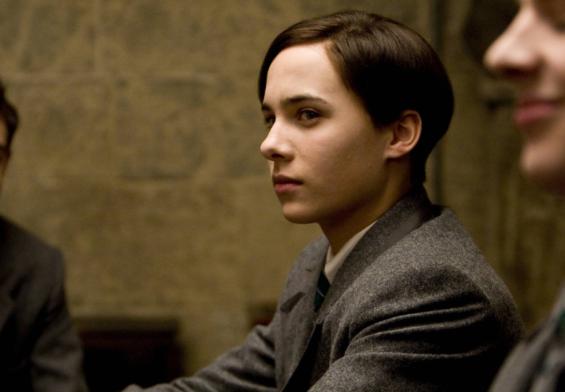
Hey everyone, Welcome to another installment of Harry Potter Theory. Today we’ll be discussing the meaning behind each of the more prominent deaths in the entire Harry Potter series.
Although the first few installments of Harry Potter were clearly written for a younger audience, it’s evident from the very beginning of the Philosopher’s Stone that this is not a series afraid to kill off characters.
In fact, before we even get 50 pages into the very first novel, we learn alongside a distraught 11-year-old Harry Potter that his parents not only died but were murdered by one of the most evil and dark wizards of all time.
And so, while many of us were indeed taken by surprise when some of our favourite characters were later killed off in the books and films that followed, it really should have been somewhat obvious that we were in for a dark and treacherous ride.
Which brings us to today’s topic—all those deaths. What did they mean? Did they stand for anything, or were they simply meant to toy with our emotions? Well, in today’s video we’ll be discussing these deaths and, in particular, what each of them meant in the larger context of the series.
Recommended for You:- The Real Reason Voldemort Didn’t Kill Snape Himself
- The REAL Reason Dumbledore DENIED Snape the Defense Against the Dark Arts Job
- The Hidden Truth About Blood Status in the Wizarding World
- Discover Secrets of the Wizarding World: Unveiling Major Events Before Harry Potter
Lily and James Potter
To start us off, let’s begin at the beginning—Lily and James Potter. Before we make it very far into either the novel or film version of the Philosopher’s Stone, we learn that Harry Potter is an orphan who’s lost both his parents as a young boy.
And although he had been told by his aunt and uncle that his parents’ deaths were the result of a car crash and were therefore simply an accident, he soon discovers that Lily and James Potter were indeed murdered by one of the darkest and most evil wizards of all time, Lord Voldemort.
But, besides the tragedy of it all, what’s the meaning behind these deaths, the first of which we hear of in the series? In my opinion, the answer to this is multifaceted. Harry needed to be an orphan with a tragic backstory in order for him to become the young hero of the narrative.
In order to ultimately defeat Lord Voldemort, he needed to be brave, resourceful, loyal, and rather modest. Living with his abusive and belittling aunt, uncle, and cousin helped him be resourceful, making life in a cupboard under the stairs work, and modest, giving him real-life examples of how harmful it is to be greedy and prejudiced.
When Harry finally got to Hogwarts School of Witchcraft and Wizardry at the mere age of 11, he was more than ready and willing to embrace kind, compassionate people and develop relationships that would be steadfastly loyal.
So essentially, the deaths of Harry’s parents were used to build the framework for his character, which became one of the main reasons he was able to inevitably kill the Dark Lord.
Professor Quirinus Quirrell
Much later in the Philosopher’s Stone, we witness the demise of one Professor Quirinus Quirrell. While Quirrell himself was not inherently evil or bad, he was rather full of hubris and was intent on proving his worth to his colleagues and former Hogwarts classmates by attempting to become powerful through the dark arts.
It’s said that this hubris is what drove young Quirinus to the forest of Albania in search of Lord Voldemort’s presumed vanquished powers. Tragically for Quirrell, he did indeed find the Dark Lord and his not so vanquished abilities, which led to him becoming possessed by the evil wizard.
In the end, Professor Quirrell died at the hands of Harry Potter, as Voldemort’s shadowy self escaped. Poor, poor Quirinus, a tragic death for a somewhat tragic wizard. But what did Quirrell’s death mean?
- The Professor’s death is actually a rather momentous one, for it’s the very first time that Harry actually kills someone.
- This is the moment that catapults Harry on his journey towards defeating Voldemort.
- The death of Quirrell can be seen as the event in which Harry destroys the part of Voldemort that thought coming after Harry would be easy.
Cedric Diggory
Cedric Diggory, he just wanted a shot at representing his school without being overshadowed by the boy who lived.
Well, obviously that didn’t go very well now did it? When killed during the Triwizard Tournament after he and Harry decided to take the trophy together in an effort to both represent Hogwarts as the winner, Cedric was murdered almost instantly after the trophy, which turned out to be a portkey, transported them to Voldemort and his followers.
It was unexpected and devastating, but what did it mean for Harry and the narrative at large? Well, I think that Cedric Diggory’s death was meant to be a sort of icebreaker of a death, a telling of what was to come.
- Cedric’s death came at the end of the Goblet of Fire.
- The increase of deaths in itself wasn’t surprising, but it was the increase of deaths of good people that truly was.
- Cedric Diggory, who was a rival turned ally, was the first drop in the bucket.
Sirius Black
Even with the death of Cedric Diggory in the Goblet of Fire, I really don’t think fans were quite prepared for the death that followed in the Order of the Phoenix.
I’m of course referring to the demise of Sirius Black. In Sirius, Harry had finally found the father figure he’d always craved and had access to memories and anecdotes of both of his parents. Sirius was even his named godfather and promised to take guardianship of Harry once he’d declared his name.
So when this strong, charismatic wizard got hit in the chest by a curse, cast by his own cousin’s wand, and he fell through the ancient and mystical veil, fans were like, it cannot be. And yet, it was.
- Sirius’ death represented the next step in where the narrative was going.
- Sirius’ death showed fans that Harry would lose much more than ever before before he defeated the Dark Lord.
Professor Albus Dumbledore
If the death of Sirius Black was tragic and unexpected, the death of Professor Albus Dumbledore was mind-blowing.
Sure, Sirius was tough and powerful, but Dumbledore was seemingly untouchable. After all, he was the man known as the greatest and most powerful wizard of modern magic. He was the only person feared by the two most evil dark wizards of the last century.
- The death of Albus Dumbledore demonstrated to us fans that we knew nothing.
- No one could be trusted. No one was safe.
- Obviously, more people were going to die.
Alastor “Mad-Eye” Moody
Mad-Eye Moody was one of my favourite characters earlier on in the series, which is a little odd to think about because throughout the majority of the Goblet of Fire, he was actually Barty Crouch Jr in disguise.
But I digress. My point is, I really liked Professor Moody, and yet when he was killed during the Battle of the Seven Potters, I wasn’t impacted nearly as much as when Hedwig was killed during that same battle.
I’ve asked myself why this would be, and the only explanation I can think of is that, compared to Dumbledore, Moody’s death just wasn’t that shocking. I think that Alistair’s death, which happened quite early on in the Deathly Hallows, was meant to signify that the final novel and films would be insanely full of death, and not just one death of “baddies,” but death of good witches and wizards.
Hedwig the Owl
Oh god, the loss of Hedwig was absolutely gut-wrenching, wasn’t it? As I just touched on, she was taken down during the Battle of the Seven Potters, at the beginning of the Deathly Hallows, alongside Mad-Eye, and her death was nothing short of tragic. That said, it certainly seemed to have a message behind it.
- Her murder showed that anything close to Harry was fair game for the Dark Lord and his Death Eaters, even beings that weren’t human.
- Hedwig’s death also seemed to represent a loss of innocence for Harry.
- It ripped away the physical representation of who he had been when he started at school and the one creature he had bonded with as a nervous 11-year-old starting a new life.
Ultimately, it would seem that Hedwig’s death showed that during the remainder of Harry’s war against Voldemort, he would no longer be permitted by his enemy to be just a boy.
Dobby the House Elf
With the death of Hedwig, but perhaps fans shouldn’t have been as shocked and devastated as they were by Dobby’s murder. And yet, many feel like Dobby’s death is one of the saddest if not THE saddest loss of the entire series.
As a well-meaning, somewhat troublesome house-elf, Dobby showed unwavering loyalty towards Harry from the moment he showed up in the Dursley’s house at number 4 Privet Drive in the Chamber of Secrets.
Over the course of the novels, Dobby’s main goal was always to protect Harry, whether that was from the Malfoy family or other looming threats, and was constantly looking out for the boy’s best interest.
Of course, his devotion only deepened when Harry managed to help him escape his contract of servitude to the Malfoys. So, why kill this beloved magical being off? I think the answer to this parallels to the meaning behind Hedwig’s death.
- It showcases how Voldemort and his Death Eaters were slowly eroding Harry’s innocence.
- Hedwig represented him as his 11-year-old self, whereas Dobby represented him the following year.
- As these beings were murdered, Harry was left with less and less of who he once was before Voldemort returned to his full strength.
- As a house-elf, Dobby also had powerful magic that could not be matched by witches and wizards. Eliminating Dobby could represent a leveling of the playing field and a nod to the fact that Harry would need to face Lord Voldemort all on his own.
Professor Severus Snape
The death of Professor Severus Snape left many fans feeling uneasy about him. Were they sad? Happy? What had just happened? Could Voldemort really be so ruthless? Well, yeah.
In reality, Snape’s murder allowed us to recalibrate how we perceived him. It turned out he was not the monstrous turncoat who had betrayed Dumbledore like we all thought. He was actually an incredibly loyal ally of Dumbledore’s who had been in love with Harry’s mum all these years.
His death allowed him to finally come clean to Harry about his history with both of his parents and show him where his loyalties truly lay. I think in a way many fans, myself included, expected Snape to die in the Deathly Hallows, but I also think a lot of us were surprised by the circumstances around his death.
- It was not a revenge sequence in which Harry tore him apart for the murder of Dumbledore, it was Voldemort who killed Snape.
- Not because he’d discovered Severus was disloyal, but because the Dark Lord thought that in doing so, he would win the allegiance of the Elder Wand.
The Battle of Hogwarts Deaths
Order of the Phoenix Members
During the final battle of Hogwarts in the Deathly Hallows, there was so much death. For this reason, I’ll only be going into a few of the key deaths that happened on the battlefield, starting with notable members of the Order of the Phoenix—Remus Lupin, Nymphadora Tonks, and Fred Weasley.
While I truly believe that the main meaning behind these deaths was to showcase that both the good side and evil side sustained loss during the wizarding war, I think there are also a few particular things to point out with each of these three deaths.
- For Remus and Nymphadora, I believe that their deaths were meant to be a foil to Harry’s parents.
- Just as Lily and James were murdered by Voldemort and left behind one-year-old Harry, Remus and Tonks were killed because of Voldemort and left behind a young son, Teddy.
- Unlike Harry, who went to live with his abusive relatives, Teddy was raised by his grandmother with help from his godfather, Harry.
- The resulting scenario from Remus and Nymphadora’s deaths represents what could have happened to Harry if his living situation had been different or if he’d had access to his own godfather, Sirius, earlier in his life.
- I think it’s also meant to show that Harry was not the only person to experience such extensive loss at the hands of Voldemort and his Death Eaters.
- As for Fred Weasley, the meaning behind his death just seems to be one more example of how no one was untouchable in the series.
- Fred and George were one and the same, and to have one of them die and not the other presented the tragic realisation that this, and many other powerhouse duos, could be undone.
Death Eaters
Lord Voldemort and Bellatrix Lestrange
The final deaths that we’ll be looking at today are those of Lord Voldemort and Bellatrix Lestrange.
In terms of Bellatrix, I think the fact that she was killed by the maternal figure of Molly Weasley says a whole lot. This cruel and powerful witch, who we see take down many other people throughout the series, including Sirius Black, is ultimately no match for the kind and caring Mrs. Weasley.
This seems to indicate a strength in love and kindness over treachery and cruelty, a strong theme throughout the series.
Which brings us to the final death of today’s video, Lord Voldemort’s. Now, there is some discrepancy in the way in which the Dark Lord meets his end, depending on whether you are referencing the novel or the film.
In my opinion, the meaning behind Voldemort’s death in the books is a lot more impactful, so I’ll be discussing that version for the purposes of today’s video. It goes:
- Voldemort fell backwards, arms splayed, the slit pupils of the scarlet eyes rolling upwards.
- Tom Riddle hit the floor with a mundane finality, his body feeble and shrunken, the white hands empty, the snake-like face vacant and unknowing.
- Voldemort was dead, killed by his own rebounding curse, and Harry stood with two wands in his hand, staring down at his enemy’s shell.
Aside from Voldemort’s death representing Harry’s victory over evil and the end of the war, I think that the passage I just read is really meant to show how the Dark Lord was no more than a man, and despite all of his evil and dark intentions, he could die, and the result was that he found death and became just a body, the same as anyone else.
And with that, we’ve come to the end of another blog. What did you think? Do you agree with my interpretations? Are there any other deaths that you think represent something specific? If so, let me know and show your thoughts in the comments below.



